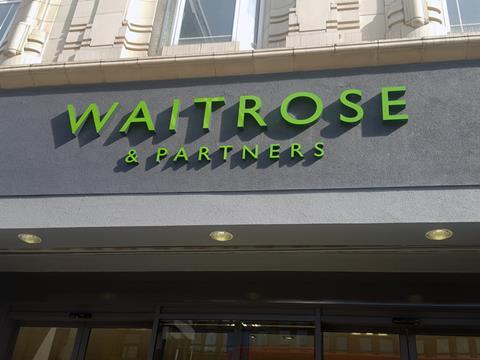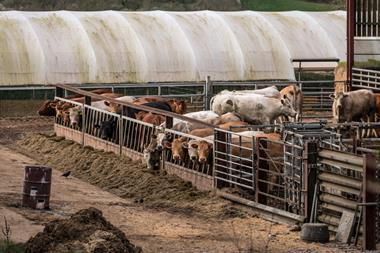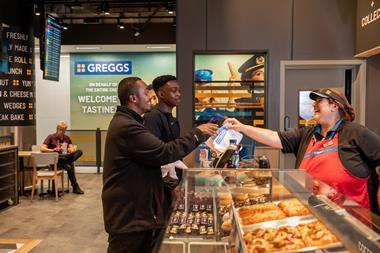
Waitrose has been accused of a lack of transparency over alleged breaches of the Groceries Supply Code of Practice (GSCOP) after altering its approach to reporting amid “unprecedented demand” caused by Covid-19.
A report by the British Brands Group (BBG) found that across 2020-21 the number of alleged breaches of GSCOP publicly reported had fallen, from 155 to 124, despite what it called the “extreme pressures” felt by retailers and suppliers during the pandemic, as well as an additional designated retailer (Home Bargains/TJ Morris).
Based on public reporting from the 13 supermarkets, as required by the code, the BBG report said the decline proved the code was flexible enough to provide protection to suppliers. This was despite fears the pandemic would result in widespread reports of short notice delistings by supermarkets.
“Taken overall, the [decline], was particularly notable in light of the unique and challenging trading conditions that prevailed in 2020-21 and is testament to the efforts of the Adjudicator and designated retailers’ commitment to compliance,” said BBG director John Noble.
The retailer most commonly cited for alleged breaches was the Co-op. The Co-op was also one of only three retailers – the others were Aldi and Asda – to report a dispute, which the BBG said was most likely due to a delisting. “In a trading environment in which a number of retailers are reducing their ranges, more disputes might have been anticipated,” it added.
However, the report singled out Waitrose for being “at odds with the obligations under the code” after it failed to publish details of any alleged code breaches. Retailers are required to publish an overview of their compliance with the Code either in their annual reports or on their websites, “including instances where a breach or alleged breach of the code or this order has been identified by a supplier, and the steps taken to rectify it” as well as information on disputes.
This year was the first time Waitrose omitted this information, having included it in its report for the previous eight years, including 11 alleged breaches reported by suppliers in 2020, the fifth-highest of any retailer covered by the code.
Noble added: “Most retailers report on alleged breaches, along with disputes and their outcome. This year Waitrose is the exception in not publicly reporting quantified information on alleged breaches, disputes or outcomes, despite one of the lengthier reports.
“All other retailers state either there have been no alleged breaches or give some numbers. It is therefore unclear from its report how Waitrose performed in relation to this aspect of its compliance with the code.”
The BBG report follows the official GCA survey in the summer, which showed fewer suppliers reported experiencing code-related issues, down to 29% from 36% in 2020.
This week Waitrose strongly defended its compliance and transparency over GSCOP and insisted that the failure to include the information was an “unintended omission”.
A spokeswoman said: ”Waitrose & Partners is committed to transparency in all our reporting and the information cited in the [BBG report] was received by both the GCA and CMA in the prescribed form. Not only did we report alleged breaches, but were subsequently praised by the GCA for our transparency, reporting more alleged breaches than the number that had been reported to the GCA’s office by suppliers, demonstrating that Waitrose & Partners has very robust processes for capturing, dealing with and reporting on GSCoP complaints.”
Waitrose noted that in its 2020/21 Annual Compliance Report, submitted to the Competition & Markets Authority on 14 April 2021, 14 ‘level 1’ complaints and two ’level 2’ complaints were reported, and a further level 1 complaint carried over from the previous year for the 2020/21 reporting period, with all but two resolved within the reporting period, the spokeswoman added.
“However, unlike in last year’s report, we did not provide the stats on the number of breaches or alleged breaches that we received. This was an unintended omission on our part. We’ll ensure that this detail is included in all of our future reports as it was last year. Our code compliance officer is also going to share this information with our suppliers in the next edition of his supplier newsletter in January - it is certainly not something we are hiding.”



















No comments yet